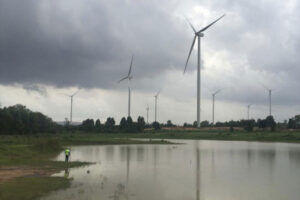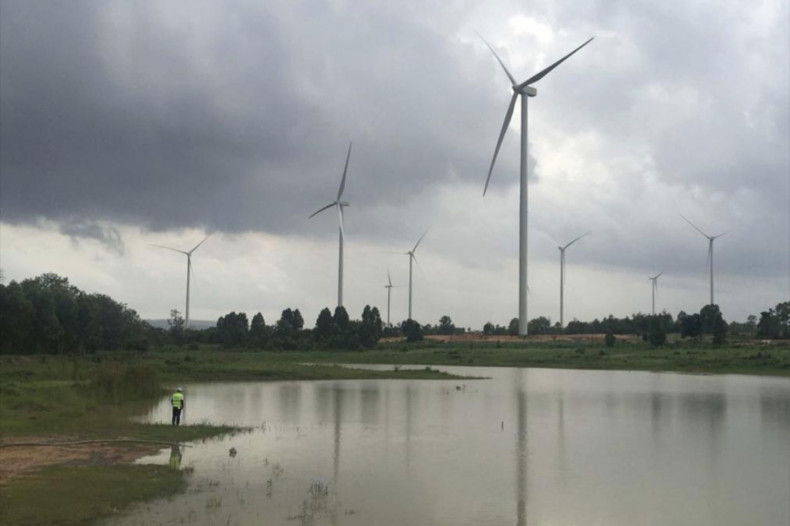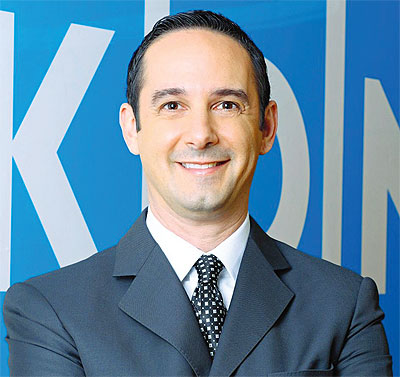
Windfall from renewables scheme
EXPLAINER: The second phase is expected to lead to huge investments by developers of clean power generation facilities
The much-delayed second phase of the renewables scheme is expected to be revived this month, with a new auction for renewable energy projects expected to draw both existing and new investors.
The scheme is not only an essential part of state efforts to reduce carbon dioxide emissions from fossil fuels, but is also expected to increase investment in power generation facility development and benefit related businesses.
The Explainer looks into the commercial aspects of the renewables scheme, overseen by the Energy Regulatory Commission (ERC), as a programme projected to significantly reduce greenhouse gas emissions.
Q: What business opportunities are available through the scheme?
The second-phase auction should lead to billions of baht worth of investments among developers of renewable power generation facilities, according to ERC.
Power tariff set to fall by early 2025
A closer look at the new energy plan
The regulator expects the new bidding, together with some renewable energy development projects under the first phase, to generate 300 billion baht in investment value from 2025, said an Energy Ministry official who requested anonymity.
Many companies granted licences to develop power plants in the first phase, with electricity generation capacity of 5.2 gigawatts, already invested to build facilities, but some are expected to start construction next year after signing power purchase agreements with state grid operators.
In 2025, bidders who win licences in October’s auction should begin allocating money for their investments, the official said.
The second-phase scheme, offering capacity of up to 3,668.5 megawatts, comprises solar farms (2,632MW), wind farms (1,000MW) and biogas (6.5MW from waste water and solid waste and 30MW from industrial waste).
Among the companies interested in joining the new auction is Gunkul Engineering, a renewable energy developer and construction firm.
The company is preparing to resubmit 10 project proposals for solar and wind farm development, with a combined capacity of 413MW, for the second phase, said Thitipong Techaratanayuenyong, chief financial officer of Gunkul.
In the first phase, Gunkul was awarded 17 licences to develop solar farms, solar farms with battery energy storage systems, and wind farms, with a combined capacity of 832MW.
Gunkul was among 175 companies awarded licences in the first phase, though the total capacity of the phase was later reduced to 4.85GW, down from 5.2GW.
Gulf Energy Development commanded the largest share of capacity, with 28 projects totalling more than 2GW.
Other companies awarded licences include Absolute Clean Energy Plc, with 112MW from 18 projects, Thai Solar Energy Plc, with 100MW from eight projects, and BCPG, the power generation arm of Bangchak Group, with 12MW from five projects.
Q: Which sectors other than power plant developers could benefit from the renewables scheme?
Companies operating businesses related to transmission systems should be able to take advantage of the scheme.
Bangkok Cable Co, a local electrical wire and cable manufacturer, believes it can rake in additional revenue from renewable energy projects.
Higher renewable energy consumption, driven by global efforts to slow rising temperatures caused by fossil fuel burning, is expected to increase demand for electrical wires, said Pongsapak Nakornsri, executive director of Bangkok Cable.
Electrical wires will become an essential part of ongoing global efforts to achieve a net-zero goal, a balance of greenhouse gas emissions and absorption, to ease the impact of climate change, he said.
According to Bangkok Cable, as the world moves towards net-zero emissions, global power supply is expected to triple, with renewable energy making up 91% of the total.
This will push global demand for wires beyond 80 million kilometres in an effort to upgrade existing lines and develop new electrical infrastructure to support renewable energy transition, said the company.
In Thailand, demand for electrical wires and cables is expected to grow by 30% by 2037, said Mr Pongsapak.
The government set 2037 as the marker for when the country is expected to achieve substantial use of renewable power.
Under Thailand’s new power development plan, scheduled to be implemented from this year to 2037, renewable energy should comprise 51% of total fuel use by 2037, up from 20% at the end of last year, while coal and gas decline to 48%, down from nearly 80% early this year.
The other 1% comes from nuclear energy and new energy solutions aimed at reducing fossil fuel usage and saving electricity.
Authorities are keen to boost clean energy usage after former premier Prayut Chan-o-cha announced in 2021 at the 26th UN Climate Change Conference that Thailand would be more aggressive in addressing climate change, striving to reach carbon neutrality, a balance between carbon dioxide emissions and absorption, by 2050, along with a net-zero target by 2065.
Mr Pongsapak said Bangkok Cable wants to benefit from the government’s more environmentally friendly policies, seeking to limit global temperature increases.
The company wants to apply this priority to its 60-year-old business, he said.
“It is not enough to focus only on the development of high-quality electrical wires and cables to ensure safety for households, supporting officials in building safe and effective transmission systems for cities,” said Mr Pongsapak.
“We need to think of how to make products that can help the environment.”
Thailand and the international community need innovative electrical wires and cables to support building a path towards a low-carbon society, he said.
Source: www.bangkokpost.com/business/general/2882487/windfall-from-renewables-scheme



